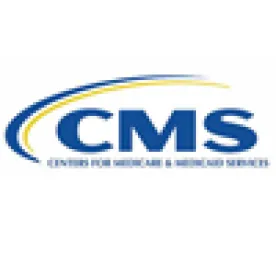In case you missed it, here are some key health care policy headlines from the past week.
Congress
Legislation and Committee Activity
Alexander: Senate Sends Opioids Legislation Called “Landmark” by Leader McConnell to President – On Wednesday, the U.S. Senate passed by a vote of 98-1, the SUPPORT for Patients and Communities Act, sponsored by Senator Lamar Alexander (R-TN). Majority Leader Mitch McConnell (R-Ky.) has called the bill, which is now heading to the President’s desk for his signature to become law, “landmark” opioids legislation. Read More
Becks Hospital Review: Hospital CEOs Petition Congress Over Prescription Drug-Pricing Program – The CEOs of more than 700 hospitals and health systems penned a letter to U.S. lawmakers, urging them to protect the 340B drug pricing program amid efforts to reduce prescription drug costs. The letter, dated Oct. 2, came from CEOs representing hospitals and health systems from all 50 states and Washington, D.C., that participate in 340B. Read More
The Hill: Drug Companies Fear Democratic Congress – Drug companies are gearing up for a fight if Democrats take over the House. Democratic lawmakers say Republicans have gone too easy on the industry and are vowing that will change if they take power in November’s midterm elections. They are promising investigations into rising drug prices and say they will push to allow importation of cheaper medicines from other countries and to allow Medicare to negotiate prices with pharmaceutical companies. Read More
Administration
HHS
Politico: Trump’s Short-Term Health Plans Have Arrived – Health insurers and brokers are gearing up for the first open enrollment period under the Trump administration’s revamp of the individual market, creating new plans and expanding marketing efforts to take advantage of laxer restrictions on skinny short-term coverage. Read More
CMS
Proposed Rule: Medicare Program: Changes to the Medicare Claims and Medicare Prescription Drug Coverage Determination Appeals Procedures – On Tuesday, the Centers for Medicare & Medicaid Services (CMS) published a new proposed rule on the Medicare Program. Read More
Final Rule: Medicare Program – On Wednesday, CMS corrected a published final rule on Hospital Inpatient Prospective Payment Systems for Acute Care Hospitals and the Long Term Care Hospital Prospective Payment System and Policy Changes and Fiscal Year 2019 Rates; Quality Reporting Requirements for Specific Providers; Medicare and Medicaid Electronic Health Record (EHR) Incentive Programs (Promoting Interoperability Programs) Requirements for Eligible Hospitals, Critical Access Hospitals, and Eligible Professionals; Medicare Cost Reporting Requirements; and Physician Certification and Recertification of Claims”. Read More
CMS Accelerates Innovation and Promotes Patient Access to Medical Technology – On Wednesday, as part of broader efforts to modernize the Medicare program and bring the latest technologies and innovations to Medicare beneficiaries, CMS announced changes to the way contractors decide which technologies are covered by publishing a revision to Medicare’s Program Integrity Manual. Read More
WSJ: Trump Administration to Step Up Oversight of Hospital Watchdogs – On Thursday, the Trump administration announced “increased oversight of organizations that accredit and inspect most U.S. hospitals,” according to a report in The Wall Street Journal. “The Centers for Medicare and Medicaid Services, which grants accrediting authority, said it will change the way it measures the performance of accrediting organizations in a pilot project and will provide the public with new information about accreditors’ and hospitals’ performance.” Read More
FDA
Guidance Notice: Adaptive Designs for Clinical Trials of Drugs and Biologics – On Monday, the Food Drug Administration (FDA) published draft guidance on an adaptive designs for clinical trials of drugs and biologics. The comment period is open for 60 days. Read More
Statement from FDA Commissioner Scott Gottlieb, M.D., on New Agency Actions to Further Deter ‘Gaming’ of the Generic Drug Approval Process by the Use of Citizen Petitions – When I announced the Drug Competition Action Plan, or DCAP, in June 2017, I committed the FDA to a number of new steps to increase competition in the market for prescription drugs and to help facilitate the entry of lower-cost alternatives to improve patient access to affordable medicines. Read More
News
Bloomberg: Patients May Be Losing ‘Match Game’ With Medical Records – Electronic health records that don’t match up with the correct patient may be disrupting patient care and causing unnecessary medical testing. Patient matching rates aren’t where they should be and are hindering the national exchange of electronic patient records, according to a Pew Charitable Trusts report released Oct. 2. Matching rates may be as low as 80 percent, meaning one in five patients may not be matched with their health record when getting treated. Read More
Looking Ahead
The House is in recess and will return on Tuesday, November 13 after the elections. The Senate is in session next week.







 />i
/>i

